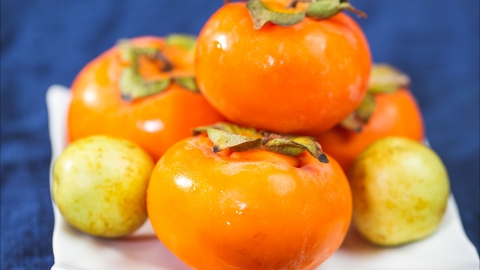Can patients with appendicitis eat persimmons?
Generally speaking, whether patients with appendicitis can eat persimmons should be determined according to their specific medical conditions. Details are as follows:

If the patient is in the stable phase of chronic appendicitis without symptoms such as acute abdominal pain, fever, or nausea and vomiting, and gastrointestinal function is normal, a small quantity of persimmons may be consumed. However, patients should choose fully ripe persimmons, remove the skin before eating, and consume only small amounts. Eating persimmons on an empty stomach should be avoided. Persimmons contain nutrients such as vitamins and minerals, which may assist in the recovery process.
If the patient is experiencing an acute episode of appendicitis, is in the postoperative recovery phase, or has gastrointestinal dysfunction (such as bloating or diarrhea), persimmons must be strictly avoided. Tannic acid in persimmons may combine with proteins to form hard masses, and unripe persimmons have higher tannin content, which may increase the burden on the intestines. In addition, the high fiber content of persimmons may stimulate intestinal motility and increase the risk of damage to the anastomotic site after surgery.
In daily life, patients should maintain good eating habits and choose easily digestible, nutrient-rich foods, which are beneficial for disease recovery.






